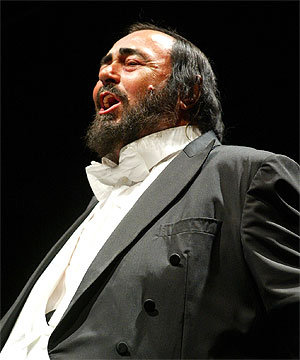|
English Language
|
Euphemisms - The Fat Lady Sings
A euphemism is a polite or inoffensive way of something that may be hurtful or embarrassing. Cultural prejudices in western societies may mean that "polite" words for defecation, passing wind, being fat or old are preferred in a society where these things are seen as undesirable.
Such items will change according to the society or cultural group - so that farting, or age, may be accepted and even celebrated by some groups but described euphemistically by others. At times it is hard to judge what is the authentic term and what the euphemism. Is defecation a best description or is it a medical or classical word acting as a euphemism? What is and what is not a euphemism for a toilet / lavatory / loo? Discuss (and check the origins of lavatory, toilet etc) ....
 Above average weight is one characteristic frequently described using euphemism in western society. Indeed even the use of the word "weight" may itself be a euphemism as the main feature is usually size or fatness rather than weight itself, which is just a measure of over-size.
Above average weight is one characteristic frequently described using euphemism in western society. Indeed even the use of the word "weight" may itself be a euphemism as the main feature is usually size or fatness rather than weight itself, which is just a measure of over-size.
So the word "fat" is rarely used when describing someone politely. "Fat git" is derogatory, "Rubinesque" (like the naked women painted by Rubens) is one rather self conscious euphemism used instead.
In an article in the Times of January 8th 2010 it is reported that Franco Zeffirelli, director of a production of La Traviata in Rome, described soprano Daniela Dessi as being over-weight. The article uses many euphemisms to negotiate this delicate subject of a woman's weight - some very circuitous.
Note how the notion of plain English would "call a spade a spade" and tend to use straightforward plain language, which is at odds here with the politeness requirement of describing the singer while causing the minimum of offence.
... sopranos or tenors sport a few extra pounds the scales appear to have tipped the other way "A woman of a certain age and plumpness is not credible in the character of Violetta" [a lithe courtesan who expires from consumption] Monserrat Caballé - a woman of unashamedly generous proportions "I did say she was on the plump side for the part, and she is. She is not exactly the kind of woman who is likely to die of tuberculosis" Gianluigi Gelmetti, the chief conductor ... [said] "I have to say that her appearance pleases me as a man." It has often been said that rounder figures make for better voices |
What is the difference, if any, between "plump" and " on the plump side"?
What is the difference between "round" and "rounder"?
In an accompanying commentary Richard Morrison uses the following terms:
singers who look as if they've eaten the scenery Daniela Dessi ... claims to be merely a couple of pies over 10st (64Kg) Pavarotti in his porcine prime when he had to be winched into position by an army of stagehands Placido Domingo ... is no waif in the waistline department |
Comment on the different styles used in the article and the commentary. How do they achieve their different levels of formality?
Is the commentary humorous or offensive? Explain your view with the emphasis on linguistic features. Don't dwell on whether being fat is good or bad, natural or undesirable.
And finally - is the phrase "circumferentially challenged" a serious euphemism, or just a silly invention?
 No-one ever told Pavarotti to lay off the pasta
No-one ever told Pavarotti to lay off the pasta